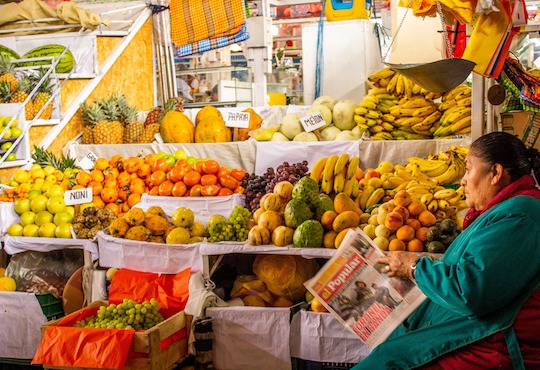The number of people in Latin America and the Caribbean living in extreme poverty could surpass 83 million this year due to the impacts of the COVID-19 pandemic, leading to a significant rise in hunger, according to a UN report released on 16 June 2020 on Preventing the COVID-19 crisis from becoming a food crisis: Urgent measures against hunger in Latin America and the Caribbean.
The study by the UN’s office for the region, known by the acronym ECLAC, and the Food and Agriculture Organization (FAO), proposes 10 measures to ward against increased hunger, including through an “anti-hunger grant” to support vulnerable people as well as food producers.
The agencies said the pandemic follows seven years of slow economic growth in Latin America and the Caribbean, and could result in the biggest drop in regional Gross Domestic Product (GDP) in a century; a decline of -5.3 per cent.
This will push an additional 16 million more people into extreme poverty this year, in a region where nearly 54 million people were already experiencing severe food insecurity.
COVID-19 is also affecting food systems, with domestic food prices rising higher than other basic items. Increased unemployment means millions are unable to buy enough to eat, while many others are forced to find cheaper food that is less nutritious.
“The major task we have ahead of us is to keep the health crisis from turning into a food crisis. That is why we are proposing complementing the Emergency Basic Income (EBI) with the provision of an Anti-Hunger Grant (AHG),” said Alicia Bárcena, ECLAC’s Executive Secretary.
Read full article COVID-19: UN agencies warn against rising hunger in Latin America and the Caribbean at news.un.org
Photo credit: Xavier Vega from Pixabay
23 June 2020Original Author: UN News

